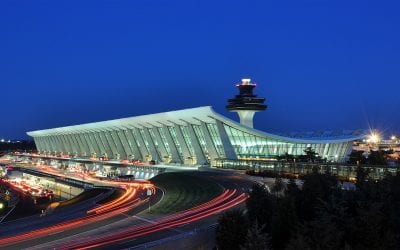AI software — Airlines are trying to deal with the new kid on the airline block.

Photo by Kevin Woblick Unsplash.
Anyone who has followed the airline industry has heard of AI software. Now, airlines are trying to find the correct use of AI within the airline pricing equation.
All major airlines, Delta, United, Southwest, and American, are working on the pricing analytics needed to deal with the new kid on the airline block, AI. It’s the evolution of information (IT) software for the aviation industry.
AI is being developed by the airlines to enable them to provide a new pricing structure. Get ready!
Over ten years ago, IATA started the NDC program. IATA claimed its program helped airlines sell their product as needed. American Airlines was the leading airline behind the push for the new organization of the industry.
About five years ago, American Airlines worked like mad to make individual and dynamic prices available for leisure and business travelers. The effort failed wth both groups of travelers. The travel agency community had no interest in the program for their business and leisure passengers. The competing airlines refused to compete on a software platform where they were not the first real mover. The Washington Post said, “…such a system might be used to extract more money from passengers and limit their ability to find the best airline ticket by comparison-shopping.”
American Airlines was the only one of the top airlines mentioned in the first newspaper story written about AI and Delta Air Lines. American Airlines also sacrificed its corporate sales department on the altar of AI (or NDC at the time). They found themselves thrown in with the rival airlines rather than being an early adopter of artificial intelligence, which is an evolution of IATA and American’s first attempts.
Delta Air Lines was the first airline to announce they were out of the AI gate, so it garnered the most press.

The Wall Street Journal published a story about Delta Air Lines. WSJ wrote about Delta’s “super analyst.” It works around the clock, processes massive amounts of data, and helps maximize revenue. It is AI.
Theoretically, the AI component of the search could review a person’s IT history and determine whether the person was traveling on business or leisure. Each type of traveler could have a different airfare. For years, this had been problematic for consumer advocates. I led the battle against personalized pricing over a decade ago.
All travelers know that airfare prices change. Prices go up based on whether or not there is a big football game. They also rise when someone like Taylor Swift is holding a concert. Plus, prices rise or fall depending on the time of the year or the day of the week one plans to travel.
Dynamic pricing isn’t new for Delta, but some customers and consumer advocates worry about supercharged AI pricing that could be based on personal information. Those fears were bolstered by comments that Glen Hauenstein, Delta’s President, made at Delta’s Investor Day in November, when he expressed hope to “have a price that’s available on that flight, on that time, to you, the individual,” Delta is using technology from Israeli start-up Fetcherr.
Expanding the Role of AI in airlines
Prices would be set not by supply and demand as they must be today, but by individual factors. Delta is working with a group called Fletcherr. The CEO Roy Cohen spoke to Forbes about collaborating with airlines. This company is merely streamlining the current processes. This is a black box kept secret by the airlines.
Typical revenue management has fare levels in buckets. When one bucket is sold out, it moves to the next. “AI supercharges your ability to make decisions” on pricing, rather than just moving to a higher fare when one is sold out, Cohen said.
He said the current array of revenue management systems is “quite a mess” with “no consistency.” Bigger carriers such as Delta have their own revenue management systems, which they update, but smaller carriers either try to keep up or buy from vendors such as Amadeus.
Branchspace states that AI is a shift from NDC.
AI is more than hype. It’s already solving real airline problems. [The writer] highlights the role of AI agents, particularly for repetitive servicing tasks like re-accommodation. Looking ahead, he envisions these agents becoming core tools for operations and customer experience. NDC has shifted from a niche tech standard to a foundational building block.
Eventually, there will be out-of-the-box solutions for smaller airlines. These solutions will allow smaller groups to make informed technology decisions as they learn AI. Digital transformation is gaining momentum in the airline world.
As workers utilize AI, they may start using the research to replace thinking.
This is a mistake. AI only helps with data that can be used to draft work. The ability to use that data, see who created it, and pull it together logically is where the personalization comes into play. That is the secret sauce.
Journalists and individuals must synthesize the information that they read, hear, and write. Then it becomes theirs, and it makes sense. Otherwise, it is just a collection of words and ideas. Never forget to think. That is the effort I will make in these missives.
Many shoes are about to drop as airlines work independently to develop the newest distribution capability. I am certain that this is only the beginning of the evolution of the airline product.

READ ALSO:
Right city, wrong country — once again, reading matters
How to avoid the agony of waterborne illnesses when traveling the world

Charlie Leocha is the President of Travelers United. He has been working in Washington, DC, for the past 14 years with Congress, the Department of Transportation, and industry stakeholders on travel issues. He was the first consumer representative to the Advisory Committee for Aviation Consumer Protections appointed by the Secretary of Transportation from 2012 through 2018.



